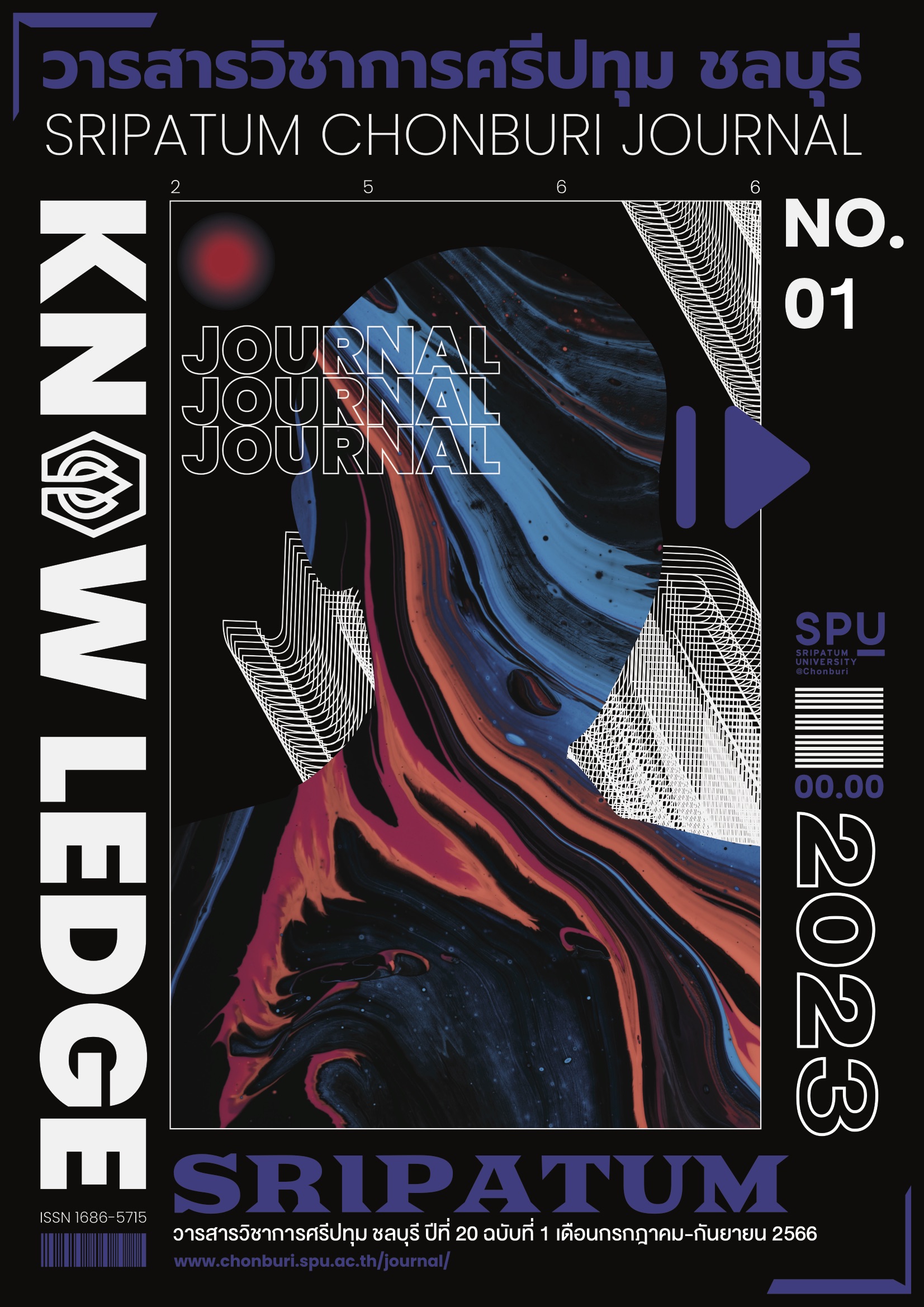THE EFFECT OF ETHICAL LEADERSHIP AND ORGANIZATIONAL CITIZENSHIP BEHAVIOR ON WORK EFFICIENCY OF ACCOUNTANTS IN BANGKOK
Keywords:
Ethical Leadership, Organizational Citizenship Behavior, Work EfficiencyAbstract
The purposes of this research were to study 1) the effect of ethical leadership on work efficiency, 2) the effect of ethical leadership on organizational citizenship behavior, and 3) the effect of organizational citizenship behavior on work efficiency. The samples selected by quota sampling according to administrative area of Bangkok were 402 accountants in Bangkok. The instrument for data collection was a 5-rating scale questionnaire. The statistics used in data analysis were frequency, percentage, mean, standard deviation, and Multiple Linear Regression analysis.
It was found that organizational citizenship behaviors had a statistically significant effect on work efficiency. The ethical leadership component (moral and equity) had a statistically significant effect on work efficiency. The organizational citizenship behavior component (Altruism, Courtesy, Sportsmanship, Conscientiousness, Civic Virtue) had a statistically significant effect on work efficiency at .05 level, and the ethical leadership component (clarified role) had a statistically significant effect on organizational citizenship behaviors.
References
กรมพัฒนาธุรกิจการค้า. (2560). จำนวนผู้ทำบัญชี (ออนไลน์). เข้าถึงได้จาก: https://www.dbd.go.th/dbdweb56/index_answer.php?tid=4064255
, 9 เมษายน].
กลีบแก้ว สองเมือง, เพชรสุนีย์ ทั้งเจริญกุล และอภิรดี นันท์ศุภวัฒน์. (2565). ภาวะผู้นำเชิงจริยธรรมของหัวหน้าหอผู้ป่วยและพฤติกรรมการเป็นสมาชิกที่ดี
ขององค์การตามการรับรู้ของพยาบาลในโรงพยาบาลศูนย์. พยาบาลสาร มหาวิทยาลัยเชียงใหม่, 49(3), หน้า 352-363.
นลพรรณ บุญฤทธิ์. (2558). ปัจจัยที่มีผลต่อประสิทธิภาพในการปฏิบัติงานของบุคลากร องค์การบริหารส่วนจังหวัดชลบุรี. บริหารธุรกิจมหาบัณฑิต สาขาวิชาการ
จัดการสาธารณะ, วิทยาลัยพาณิชยศาสตร์ มหาวิทยาลัยบูรพา.
เนาวรัตน์ รอดเพียน. (2560). ภาวะผู้นำเชิงจริยธรรมที่ส่งผลต่อประสิทธิภาพการบริหารงานบุคลากรของโรงเรียนอาชีวศึกษาเอกชนเขตพื้นที่กรุงเทพมหานคร.
วารสารราชนครินทร์, 14(32) หน้า 49-61.
เบญจพร กลิ่นสีงาม และประพันธ์ ชัยกิจอุราใจ. (2561). ปัจจัยที่มีอิทธิพลต่อพฤติกรรมการเป็นสมาชิกที่ดีขององค์การและประสิทธิภาพในการปฏิบัติงาน
ของบุคลากร กรมวิชาการเกษตร กระทรวงเกษตรและสหกรณ์. วารสารวิทยบริการ มหาวิทยาลัยสงขลานครินทร์, 29(3), หน้า 117-131.
สำนักงานปลัดกรุงเทพมหานคร. (2566). การแบ่งพื้นที่เขตการปกครองของกรุงเทพมหานคร (ออนไลน์). เข้าถึงได้จาก:
http://office2.bangkok.go.th/ard/?page_id=4048 [2566, 9 เมษายน].
อริยาวรรณ์ รัศมีกอบกุล. (2559). พฤติกรรมการเป็นสมาชิกที่ดี ค่าจ้างและบรรยากาศการทำงานที่ส่งผลต่อความตั้งใจในการคงอยู่กับองค์การ ของพนักงาน
เจนเนอเรชั่นเอ็กซ์ กรณีศึกษาธนาคารพาณิชย์แห่งหนึ่ง. การค้นคว้าอิสระบริหารธุรกิจมหาบัณฑิต สาขาวิชาบริหารธุรกิจ, คณะพาณิชยศาสตร์และการบัญชี
มหาวิทยาลัยธรรมศาสตร์.
Brown, M. E., Trevino, L. K., & Harrison, D. A. (2005). Ethical leadership: A social learning perspective for construct development
and testing. Organizational Behavior and Human Decision Processes, 97, pp. 117-134.
Brown, Michael E., & Treviño, Linda K. (2006). Ethical leadership: A review and future directions. The Leadership Quarterly, 17,
pp. 595-616.
Hoogh, A. H. B., & Hartog, D. N. (2008). Ethical and despotic leadership, relationships with leader's social responsibility, top
management team effectiveness and subordinates' optimism: A multi-method study. The Leadership Quarterly, 19(3),
pp. 297-311.
Krejcie, V.R., & Morgan, W.D. (1970). Determining sample size for research activities. Educational and Psychological Measurement,
(3), pp. 607-610.
Downloads
Published
Issue
Section
License
Copyright (c) 2023 วารสารวิชาการศรีปทุม ชลบุรี Sripatum Chonburi Journal

This work is licensed under a Creative Commons Attribution-NonCommercial-NoDerivatives 4.0 International License.
บทความทุกบทความเป็นลิขสิทธิ์ของวารสารวิชาการศรีปทุม ชลบุรี



